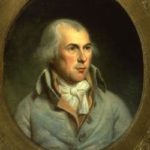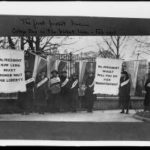In this lesson students have the opportunity to discuss how words have the power to bring about political, social, or economic change in society. By reviewing quotations from various leaders, activists, and others, students can begin to understand how ideas have an impact on the hearts and minds of people and can be a catalyst for change. Finally, students will reflect on the words of Martin Luther King Jr. and determine their relevance to the political, social, and economic issues of today.
Black History Month Lesson Plans on Nonviolence
The power of nonviolent actions and attitudes as a means to resist oppression and spur reforms is a recurring feature of democratic and democratizing societies. The School Violence Prevention Demonstration Program presents educators with lesson plans that explore the use of nonviolence in history, paying particular attention to the civil rights movement and African American history. Six lessons address: the 1963 Children’s March; the concept of nonviolence using primary sources and stories of participants in the civil rights movement; the power of nonviolence; the story of Rosa Parks; citizenship schools; how music can be used to achieve social and political change.
Women & the American Story: Modernizing America, 1889-1920
This free curriculum unit from the New-York Historical Society examines how women used various forms of activism to fight for social change during the Progressive Era. Materials consider how women advocated for their rights and the role of women’s suffrage in this advocacy.
The 19th Amendment: A Woman’s Right to Vote
Voting is the most basic right of a citizen and the most important right in a democracy. When you vote, you are choosing the people who will make the laws. For almost a century and a half of our nation’s history, women were barred from exercising this fundamental right. This film explores the long, difficult struggle for women to win the right to vote. It’s about citizenship, the power of the vote, and why women had to change the Constitution with the 19th Amendment. The film includes primary sources and commentary from historians, legal scholars, and Justices Ruth Bader Ginsburg and Anthony Kennedy.
Different Perspectives on the Civil Rights Movement
Anthony Badger uses the career of President Jimmy Carter to frame the questions of change in the American South and the relative impact that economic modernization, nonviolent protest, and armed self-defense had on the end of segregation and the steps taken toward political and social equality. Free registration for students and teachers required to access resource.
James Madison and the First Amendment

This short video traces the evolution of Madison’s attitude towards the religious liberty guarantees of the First Amendment. Initially opposed to a Bill of Rights as both inappropriate and dangerous, Madison’s views changed as a result of political and philosophical considerations. Professor Jeffry Morrison emphasizes Madison’s belief that religion should play a vital but informal role in the life of the republic.
Suffrage Strategies: Voices for Votes

Students examine a variety of primary source documents related to the women’s suffrage movement. They identify different methods people used to influence and change attitudes and beliefs about suffrage for women. Students then create original documents encouraging citizens to vote in current elections.
The 2015 Baltimore Riots: A Teachable Moment

The Newseum believes that improving civic education has the power to improve our schools, communities and our democracy. The Baltimore unrest can be an entry point in your conversation with students.
The Newseum has numerous resources to help teachers broach this topic in the classroom. Lesson plans, videos and activities guide students in how civil rights issues have been represented in the media over many decades. And how citizens, including young people, can develop a voice and use the freedoms of the First Amendment to effect change and inspire action.